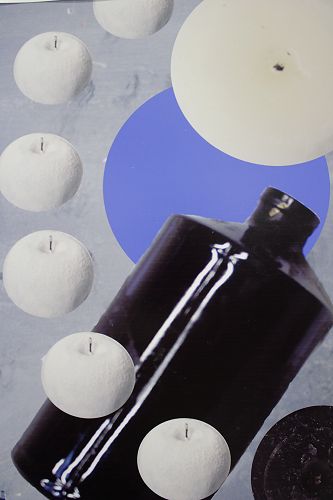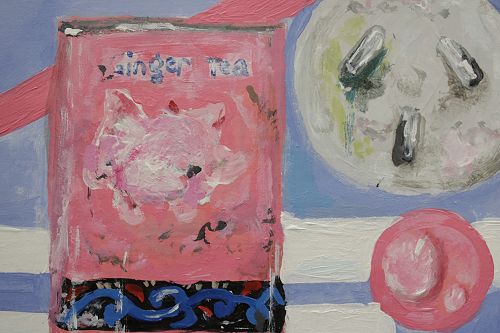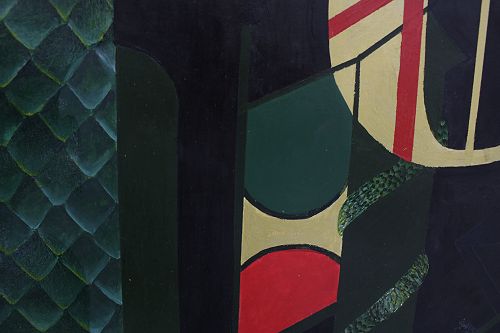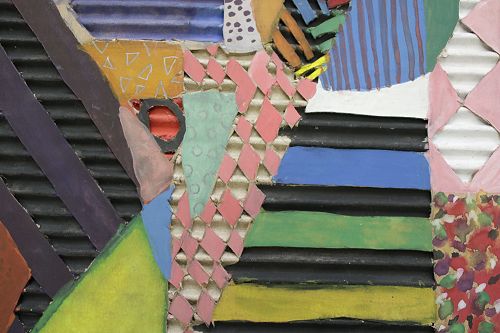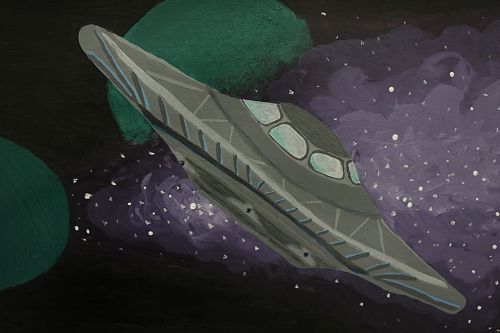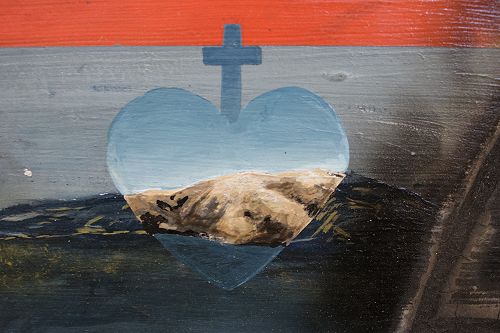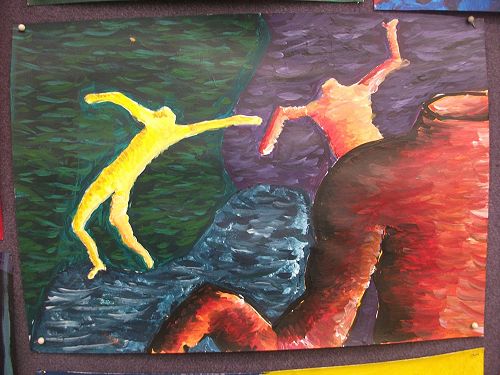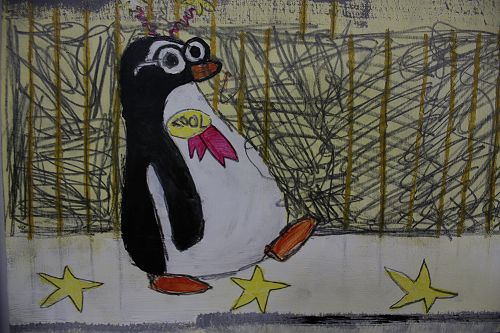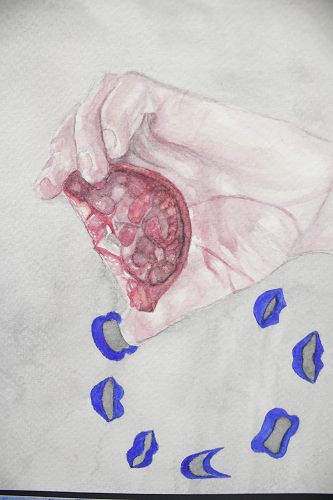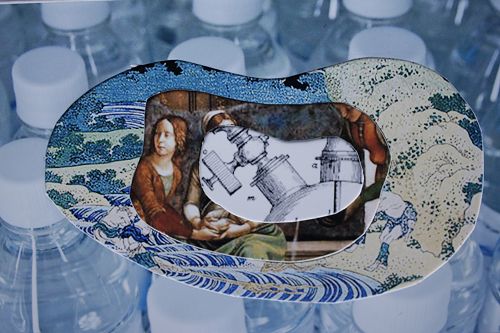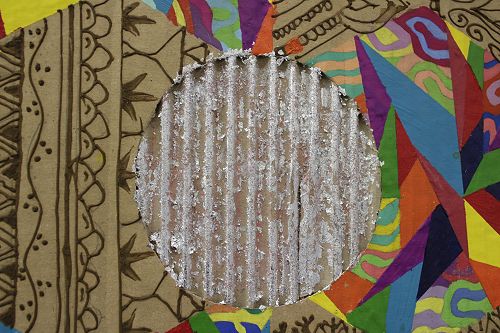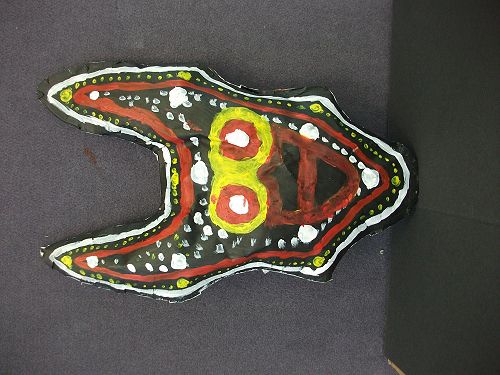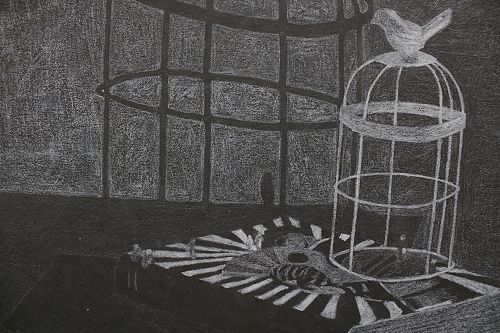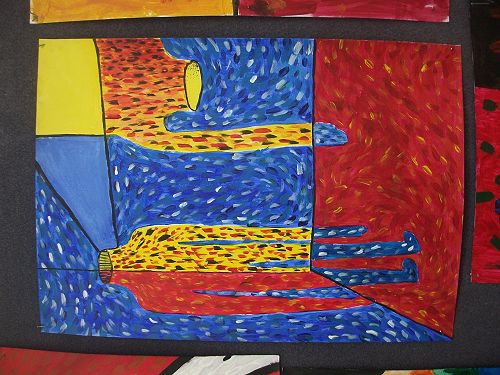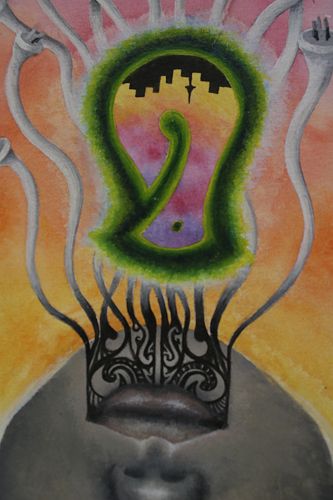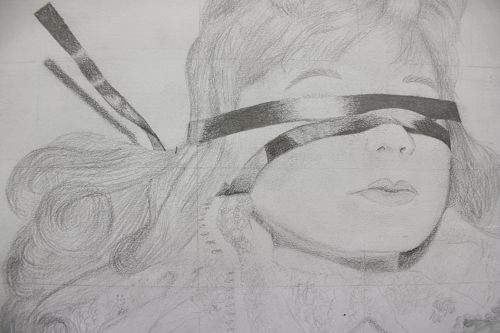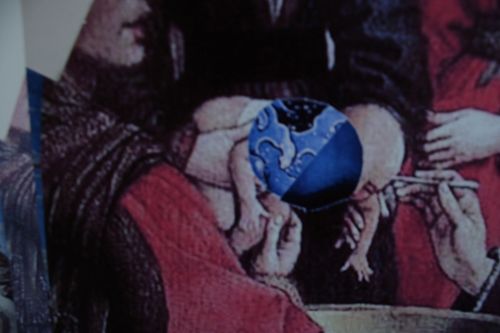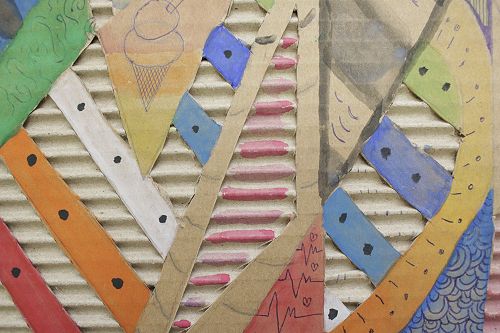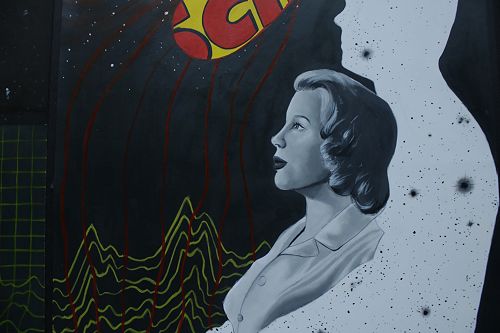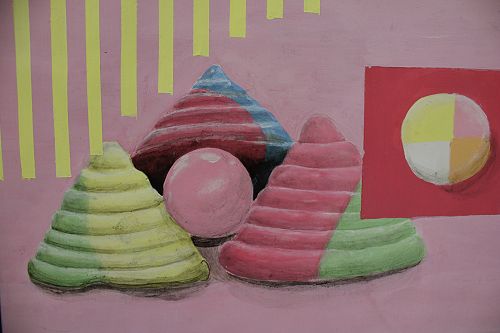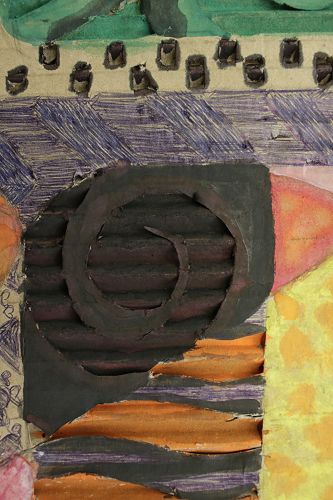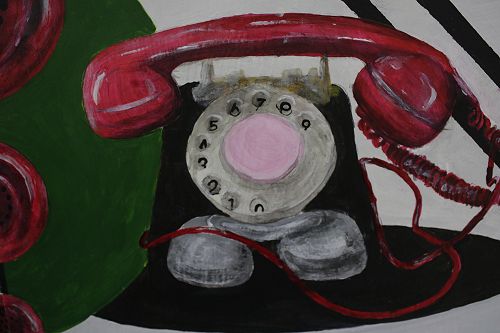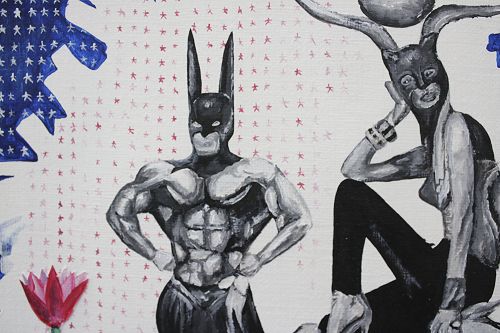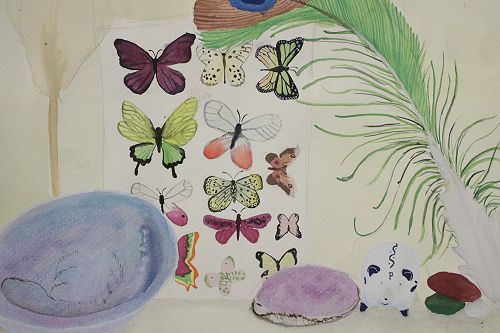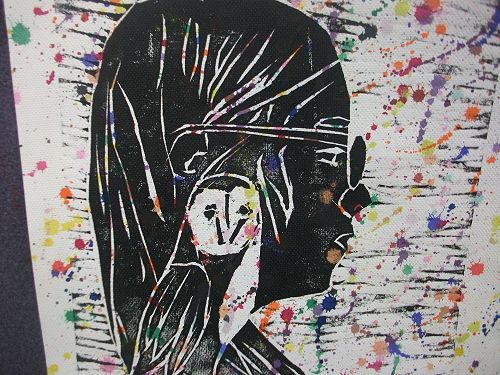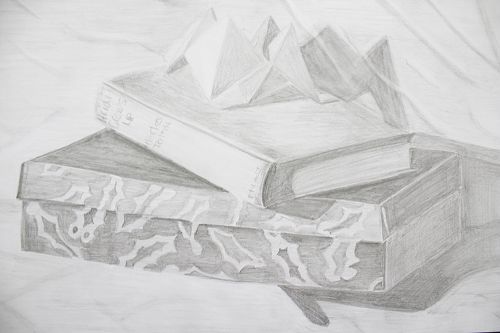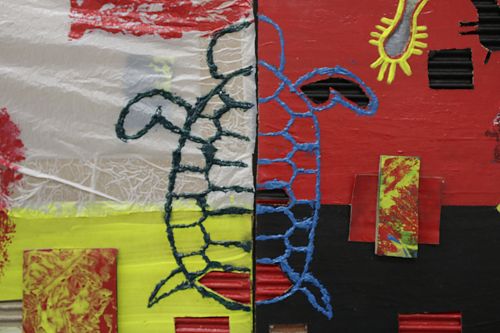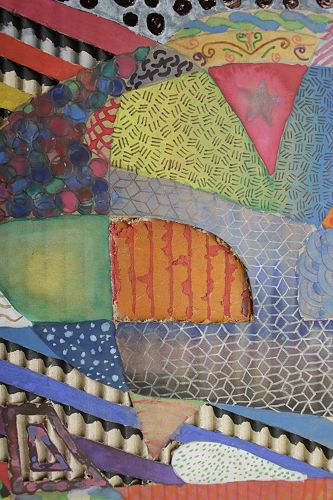
Logan Park High School 2018 Writing Competition Results and Artworks
Students worked hard to provide some amazing pieces of writing for this year's writing competition, as well as working hard to complete beautiful artworks.
Prose
1st - Jack Gilmore - The Visitant Above the Hills
2nd - Cuba Rust - The Princess and the P
3rd - Alice Houston-Paige - Muesli
Highly Commended - Hugh Gibson - Step into the Abyss
Poetry
1st - George Sabonadiere - Rusty Waterfalls Estate Pinot Noir 1993 - Tasting Notes
2nd - Cuba Rust - Your Wairua
3rd - Alice Houston-Paige - Scorched
Highly Commended - Gray Smith - Grief
Formal
1st - Lealia Deveraux - Romanticism
2nd - Adair Clark - Scarcity is a Myth
3rd - Cushla Melville - Aspects of the Rap Genre
Highly Commended - Zak Rudin - Antigone Essay
Formal
1st - Lealia Deveraux - Romanticism
Romanticism
“The longing for destiny is nowhere stronger than in our romantic life”
- Alain De Botton
Romanticism, a romantic and sentimental movement that began in the 18th Century, still profoundly influences our society today. It emphasises viewing life and nature sentimentally and responding with emotion to these. This type of emotional response has been embodied in how relationships, especially being in love, are anticipated. We grow up expecting to “fall in love”, to “intuitively just know each other”. This is exampled in Romantic novels, such as Madame Bovary, Jane Eyre, Wuthering Heights and Anna Karenina, and fairy tale Disney movies such as The Little Mermaid and Cinderella. It could be concluded that this attitude to love and relationships has become the reason why so many partnerships, especially those that begin with the glamour of romance, red roses, weddings and fairy tale bliss, fail.
The philosophies of Jean-Jacques Rousseau and Immanuel Kant helped influence the philosophical shift to Romanticism. Rousseau (who is credited with the idea of the "noble savage", uncorrupted by artifice and society), thought that civilization fills man with unnatural wants and seduces him away from his true nature and original freedom. Kant’s writings agreed, and he also considered that we only understand the world through our human point of view. Subsequent German Idealist philosophers such as Georg Wilhelm Friedrich and Hegel further developed the notion of the romantic, as he put forward that each person's individual consciousness or mind is really part of the Absolute Mind (Absolute Idealism). These philosophies were talked and written about, until they became part of the social consciousness. They began to influence themes in storytelling, including novel writing.
It is thanks to Romanticism’s influence on storytelling that we have characters we intimately know and cherish such as Lucy in ‘The Mill on the Floss’, Jane in ‘Jane Eyre’, Catherine in ‘Wuthering Heights’ and Elizabeth in ‘Pride and Prejudice’. These characters’ actions were inspired by Romanticism as they each instinctually sought a soul mate, were blissfully happy when found, and devastated when the soulmate was lost through tragedy (usually death). The love between couples continued endlessly even after death, as it lived on through their souls. In contrast, partnerships sought and selected in previous movements before Romanticism, such as the Age of Enlightenment and the Renaissance (Neoclassicism), were prioritised for personal gains and benefits.
Clouds, sunrise, waterfalls, desolate moors and rolling hills and loyal love became common themes in literature and art. Wuthering Heights has settings such as the desolate sweep of the Yorkshire moors and the barren depressing landscape of Thrushcross Grange. The Mill on the Floss has the constant theme of the ever changing river running through St Oggs.
It may be coincidence, but it is during the movement of Romanticism that female novelists began to be published, such as Mary Shelley, Elizabeth Gaskell and Mary Ann Evans. Indeed their contributions to literature became acceptable enough for them to be able to publish under their own name rather than a male pseudonym. It is possible that the emotional and sentimental sides of humanity supported by Romanticism translated to supporting a female voice and view. This contrasts with The Renaissance and The Enlightenment social attitudes, which emphasised order and a rational and relatively constricted view of life.
“People were able to drift from rational and constricted view of life” (Budick 1996)
Romantics also shifted attitudes to morality and its link with sex. They presented sex as the ultimate expression of love. Therefore adultery became a tragedy, a catastrophe, a violation of everything that love is. This attitude was further amplified by Victorianism. Many best selling novels of that time reflected and amplified this view, such as Northanger Abbey, Anna Karenina and Wuthering Heights; novels that all included the theme of adultery.
Romanticism has freed our thinking and view points to be broader and deeper, to encompass more voices and viewpoints, and has been the muse for much great writing. Yet it has had a negative impact on expectations around 21st Century couple relationships. Romanticism has fuelled the development of impossible idealisms. We hope for ideal soul mates who will intuitively seek each other and once found, the relationship will be bathed in rose tinted light. Shows produced for T.V. such as The Bachelor, Bachelorettes promulgate this hope.
Romantics believe that if you really love someone, you love everything about them including their imperfections. Love is the acceptance of the whole being, and imperfections are to be ignored. In contrast, ancient Greeks thought that love enabled an admiration for another person’s virtues, but not for their imperfections. Love was a process of mutual education, as each person could educate the other to become better versions of themselves, because they have the sincerest best interest of the other person in their heart. The trap of adhering to the romantic view of perfection and therefore determining to love all imperfections too is that when it is clear that the other person is not actually perfect, the relationship fails. The philosopher Alain de Botton suggests it's far better to understand that each of us are deeply crazy. For then people can accept and have a handle on their imperfections, and consequently not strive for an unrealistic romantic ideal.
It therefore follows that to have the best chance at succeeding in love, a person has to be disloyal to many of the Romantic ideas that got them in love. The romantic notion also focuses too much on instinct. It encourages us as adults to love as we were loved when we were children. However, trying to refind the childhood love that represents familiarity to make us happy, can create distorted adult love. Further, novels that express romantic notions never talk about the practical side of love particularly for women, such as large numbers of children, housework, financial strains, and the greatest negative outcome of romance, the dangers of childbirth, which frequently caused death. Most female writers of that time agreed with these romantic ideals, however some hinted at or more explicitly described the darker negatives of Romanticism. Anne Brontë wrote of the painful reality of disagreeable experience, although both her novels have cheerful romantic endings. ‘Agnes Grey’ (1847) is a stark account of the working life of a governess, and ‘The Tenant of Wildfell Hall’ (1848) paints a grim picture of the heroine’s marriage to an abusive husband. In Shirley (1849), Charlotte Brontë strove to be, in her own words, “as unromantic as Monday morning.” In Villette (1853), distinctive Gothic elements help emphasise the limits of stoicism with dramatic psychological intensity. In ‘Wuthering Heights’ (1847), romanticism and its negatives are successfully darkened by Gothic descriptions. With a rather firm and final view, ‘Madame Bovary’ presented the belief that the practical side of life has no place in romance.
It is evident that the Romantic movement profoundly influenced thinking at the time, as seen in philosophies, art works and plots and themes of novels. However, its influence is not confined to that time but rather has continued to the present day in how we view our ideal relationships. The negative aspect of Romanticism is that it has set up impossible ideals of how couples should behave toward one another, and perhaps this is in part why there are some many failed relationships today.
By Lealia Devereux
Poetry
1st - George Sabonadiere - Rusty Waterfalls Estate Pinot Noir 1993 - Tasting Notes
Rusty Waterfalls Estate Pinot Noir 1993 - Tasting Notes
It’s like blood,
the way it clings in sanguine streaks to the glass as it swirls.
I get a hint of plum with notes of cinnamon and allspice,
maybe even walnut.
It must be American oak, with those powerful hits of vanilla;
no, French oak.
Gentle spice, the texture of satin.
Definitely French oak.
My palate is laced with the alkaline soils of the Midi-Pyrénées,
foiled lightly by a chiseled edge of ancient gneiss and granite.
The halting warmth of filtered sunlight and the crisp purity of alpine air marry on my tongue
for an experience that is, well,
exquisite.
Children frolicking carelessly in a field;
an older man tirelessly restoring the beauty of a classic car;
the look of despair painted on the face of a disappointed horse.
These are the lives that I hold in my glass.
Tones of citrus; mandarin and tangelo, perhaps.
The plum has faded, with the taste of summer dissolving into the fragrant complexity of autumnal leaves.
Apricot preserve, prematurely taken from its shelf
by a hand that longs for the warmth of February’s orchards.
A door squeaking at midnight.
Whispers below the window in the early hours.
Forbidden love and the bitter touch of cranberry.
Betrayal, best served at the temperature of a hotel room.
That bitch.
This is the life I raise to my lips.
To finish, the smell of paper stacks and pine.
A suggestion of saltiness, the slightest touch of a child’s tears.
The dregs smell of blueberry and a failed marriage,
full-bodied and rich with charcoal.
3rd - Alice Houston-Paige - Scorched
Scorched
The ferocity of the flames
complements
the passive nature of the victims.
Wrists and ankles bound;
stakes are high
(literally).
A cascade of amber
envelops the day, and his
cold eyes reflect the
glowing sparks.
The privileged Lady watches
with unseen horror.
Is he sick?
Am I safe?
Lady watches Lady burn;
mother watches children burn.
The witches sing,
and their twisted words resonate
with the murderer.
Their chilling song ignites
his soul.
More than one child’s life flickers
before the Lady feels relief.
Liberation arrives when the wind carries
the victims’ ashes
to the castle.
Entwined with the ashes is
his yearning.
The heir of the crown
valiantly falls, and
the witches’ song reaches an
interlude.
Brave Macbeth lies,
defeated,
in the rolling hills.
The future is
scorched.
By Alice Houston-Page
Prose
2nd - Cuba Rust - The Princess and the P
The Princess and the P
My sister is the Princess.
I am the P.
It is not by some cruel twist of fate that I managed to find myself wrapped in blankets, under a pile of mattresses twenty storeys high. It’s been this way all along. I have always been the P, the proof- just like in the fairy tale- that my sister is in fact the princess she appears as. A real princess, as opposed to the fake kind.
***
escapism
noun es·cap·ism \ i-ˈskā-ˌpi-zəm \
Definition of escapism
: habitual diversion of the mind to purely imaginative activity or entertainment as an escape from reality or routine
***
I have always liked the letter P. When I was younger I got called Parrot, I still do sometimes. I like words which start with the letter P. Preposterous, perpetually, and petrichor. They make me smile. They are pleasant. The Preposterous Parrot Perpetually Pleased by Petrichor. What a fantastic sentence, if only people spoke that way all of the time. Maybe I’d go out more.
***
distraction
noun dis·trac·tion \ di-ˈstrak-shən \
Definition of distraction
1: something that distracts : an object that directs one's attention away from something else
2: the act of distracting or the state of being distracted; especially : mental confusion
- driven to distraction by their endless chatter
***
It’s cold this morning. Crisp frost materialises on my fingers as I sit for hundreds of years, stationary on the steps. I impersonate a gargoyle and curl my toes. Around me, the world moves in stop motion. My sister goes to school. Her red gumboots look a bit like ladybirds. She flies away down the footpath and talks to the birds on the way. I expect they are off for an adventure. My Dad says I have an ‘overactive imagination.’ I say he’s just boring.
***
Fantasy prone personality
Fantasy prone personality (FPP) is a disposition or personality trait in which a person experiences a lifelong extensive and deep involvement in fantasy. This disposition is an attempt, at least in part, to better describe the popular term "overactive imagination", or "living in a dream world". An individual with this trait (termed a fantasizer) may have difficulty differentiating between fantasy and reality and may experience hallucinations, as well as self-suggested psychosomatic symptoms
***
Some facts about me:
I am twelve years old.
I love the colour yellow.
I love loud unexpected noises.
I don’t like dogs or cats, I like bugs.
People call me too smart for my own good.
I don’t understand how you can be ‘too smart’ for your own good.
I wonder if anyone ever said that to Stephen Hawking, and what he said back.
When I’m older I want to be an astrophysicist.
I have never really liked people.
People have never liked me.
People have always loved my sister. I understand that- I love my sister too. She is lovable. Not unlike words beginning with P which just pour from your mouth. She is a real Princess.
A Real Princess: Someone who can feel a pea through twenty mattresses and twenty feather beds. I am the uncomfort in the room. I am the Pea, I am the test, and I am always there. She stays anyway.
Fake Princesses could never do that.
***
1
fake
adjective \ ˈfāk \
Definition of Fake
Having a false or misleading appearance; fraudulent.
n.
***
Now you may have questions. Why the dictionary definitions? Let’s start with that one. The answer is simple, and although I do not like simple things I have garnered the impression that most people are not like me. That’s okay.
I feel like people talk too much, and I feel like people don't understand or care about what they are saying. People say I am quiet. They ask why I don’t talk. “Cat got your tongue?” They say, and smile.
No the ‘cat’ does not have my tongue.
I would be significantly alarmed if a cat had my tongue.
Most people would I think. Or maybe that’s the point. It’s an odd saying.
I tell them: I talk when I need to talk. They don’t always like that.
Dad told me “If you hate talking so much, why don’t you write.” So that is what I am doing. I am writing, and I am putting in definitions to make sure people understand me. Being misunderstood is possibly the worst thing, worse even than the sinking feeling in your gut when you need to pee at the start of a long bus trip. I am misunderstood a lot.
I sit on the grass and blow bubbles. I know the constellations by heart. I love the colour yellow. These are important things.
***
important
adjective im·por·tant \ im-ˈpȯr-tᵊnt , especially Southern US and New England -tənt ,-dənt \
Definition of important
: marked by or indicative of significant worth or consequence : valuable in content or relationship
***
My sister is the Princess.
I am the P.
These are important things.
3rd - Alice Houston-Paige - Muesli
Muesli
Your muesli-eating technique annoys me. I find it irritating that you take unreasonably large mouthfuls. Your spoon is overburdened with muesli, yoghurt and milk, and this inevitably means that the yoghurt seeps through your lips as you chew. I find this rather unpleasant. If I were an impolite person, I would describe it as disgusting.
Yesterday morning, you had toast for breakfast. You had three pieces, with marmalade. The marmalade was not spread right to the edges. I like my marmalade spread right to the edges. I prefer it when you eat toast rather than muesli, although I have to admit, you made loud crunching noises which I found obnoxiously persistent.
While you ate your toast yesterday, you read the newspaper. You do this every morning. I have no objection to this; the newspaper is a great way of keeping up to date with the ever-changing world we live in. It’s true that I myself enjoy reading the newspaper.
Okay, well, I do have a teeny weeny objection. I would like to have an engaging conversation in the morning before I go to work for the day. That would be more stimulating than watching you read. But you’re not a morning person.
I would feel more comfortable with your lack of vigour and energy in the morning if you had some vigour and energy in the afternoon. When I arrive home from work, I frequently find you slumped across the couch, watching television. I suggested that you could get a job, to help support us. It’s unfortunate that it didn’t work out.
I also suggested you could take cooking classes, and make some meals for us to share. “It would take some of the pressure off me,” I said. That idea didn’t work out either.
Tomorrow, since it’s Sunday, I’m going to get up early and make you pancakes for breakfast. I know that you like pancakes. When you eat pancakes, you don’t make obtrusive crunching noises, and your mouthfuls are of an appropriate size.
While you eat your pancakes, I will imagine the unshared stories repressed inside your head. I will think about the day when the stories will all splurge out of your mouth, like yoghurt when you eat muesli.
2nd - Adair Clark - Scarcity is a Myth
Scarcity is a Myth
Tonight, about 800 million people will go to sleep hungry. Around the world, one in nine people are underfed. In the morning, 66 million primary age children will attend class hungry. One in four of the world’s children are stunted. In 2015, 15 people died every hour from measles, a disease we have a working vaccine for. Even in “developed” countries, millions of people go without. But you all know that. You all know the probable conditions of the people who make your clothes, you’ve all heard that there are starving kids in Africa. But you also have probably been told that poverty is inevitable, that, aside from eating your animal crackers and the occasional donation to some kid’s hunger drive, there’s nothing you can really do. This is a lie. Poverty is preventable and estimates show that world hunger could be eliminated with a fraction of the United States military budget, or an inconsequential sliver of Apple’s net worth.
In 2008, the UN estimated that feeding the hungry would cost 30 billion US dollars a year. That’s 30,000,000,000 dollars. At first glance, that may seem like a lot. I don’t have 30 billion dollars. It’s hard to even imagine 30 billion dollars. So here’s some help. The New Zealand government has a little under twice that, about 76 billion New Zealand dollars (51 billion United States dollars). The American government had 1.11 trillion dollars in 2015, and spent 598.5 billion of it, just over half, on defense. That’s about 20 times the needed 30 billion dollars, just on defense! And remember Apple? They’re not off the hook yet, making 48.4 billion dollars in 2017 alone, and with a net worth nearing 1 trillion dollars. So we have the money. Do we have the food?
Well, yes. More than enough food is produced to comfortably feed every person in the world, but a third of it goes to waste. To me, it feels obscene that billions of dollars worth of time and resources are put into minor improvements to smartphones and the like, and yet we swallow the myth of scarcity. In wealthy regions, stores won’t even sell produce if it doesn’t meet visual standards, whilst within their borders millions of people are underfed or go without shelter, and in poorer regions of the world, malnourishment can be the norm. So why are we seemingly incapable of making efficient use of our plentiful wealth?
Short answer, it’s not profitable. There’s no profit in giving things to people with nothing, and our current global system places a huge emphasis on profits, putting low prices before human lives at every chance. We created the “third world” through colonialism, and today developed countries are still leeching off the labour of its poorer population, supporting wars that keep nations unstable, and refusing to make a good faith effort to end global poverty. Then we excuse disasters and death, because “it’s the third world”, and horrifying things happen all the time. A few individual people have up to twice as much as it would cost to end world hunger for a year, but they’re not going to do it, because they got that money by caring about the bottom line, which means buying advertisements to convince people that they’re not good enough, by paying hundreds of workers as little as possible so that shareholders can keep the profits, and usually evading taxes and regulations with a team of lawyers and lobbyists, not to mention blind luck. And we’re supposed to trust these people to use their wealth for good? We’re supposed to trust the wellbeing of the masses to their charity? Forgive me if I’m not comforted at the thought.
We need to stop pretending that scarcity is a problem, and address the real issues of inequality inherent to capitalism, within countries and globally. Global capitalism might work, in theory, if we somehow all started out on equal footing. But we didn’t. Countries devastated by colonialism and then left to fend for themselves with greatly diminished environmental wealth and resources are bearing the consequences for our evils whilst those born rich maximise profits, in such grotesque quantities that they could never hope to spend them, by doing nothing of real value. To compensate for this we need more checks and balances on businesses. We need to take from the very rich, and when I say “take” I don’t mean tiny increases in the highest tax brackets, I mean massive taxes on unearned income, real restrictions on what the wealthy and corporations can do with their money, from lobbying to buying second and third homes while one in one hundred New Zealanders go without secure housing. Unfettered capitalism has failed. Rather than eliminating scarcity, it has created shortages where none should exist. Effective and democratic outright socialism seems unlikely with public opinion as it is, and the fantastic dreams of anarchists far from our lifetimes, but common sense restrictions on capitalism should be something we can all come to an agreement on.
And we need to get our priorities in order. At times when, both domestically and overseas, people starve to death, are infected with vaccine preventable diseases, don’t have shelter or healthcare or go without a basic education, there are luxuries we can’t afford to keep throwing billions of dollars at. The New Zealand government is pretty good on this front, spending most of its budget on health, education, and welfare, albeit with dubious effectiveness. But other countries are not doing so well. The US, as a dramatic example, spends a majority of its money on defense, nearly 600 billion dollars, as I’ve said. Why they think they can afford a military at all with a struggling education system, no public healthcare for the majority of the population, an archaic justice system, no concrete plan to reduce carbon emissions, and many such problems is beyond me, but it doesn’t look set to change anytime soon. And they’re not alone in this, not by a longshot.
The world needs to stop blindly trusting the free market and get its act together. Scarcity is a myth, and every person that dies to keep that myth alive is on our hands.
Sources and Info:
https://www.nytimes.com/2008/06/04/news/04iht-04food.13446176.html
https://www.nationalpriorities.org/campaigns/military-spending-united-states/
http://www.foodaidfoundation.org/world-hunger-statistics.html
http://www1.wfp.org/zero-hunger
https://www.oxfam.ca/there-enough-food-feed-world
http://fortune.com/2017/11/08/apple-stock-amazon-trillion-aapl-iphone-x/
https://www.businessinsider.com/how-much-money-big-companies-make-every-second-2017-12/?r=AU&IR=T
https://vaxopedia.org/2018/06/10/how-many-people-die-from-vaccine-preventable-diseases-these-days/
https://borgenproject.org/the-cost-to-end-world-hunger/
http://www.who.int/gho/immunization/en/
Formal - Highly Commended - Zak Rudin - Antigone Essay
Antigone Essay
Explain how a conflict between characters was driven by their beliefs.
By Zak Rudin
The main theme in the play Antigone, by Sophocles is the conflict between the characters of Antigone and Creon. The play centres around a clash of wills between the two characters, each driven by their own distinct different belief systems, accompanied by their own unique perceptions of justice. This conflict creates a layer of complexity as neither character is truly the protagonist of the story, causing one to think that they are not as different as one may initially think. As with many classical tragedies, this conflict proves to be greatly destructive for all parties involved, causing multiple deaths.
The major conflict between Antigone and Creon was driven by their differing beliefs. The conflict was initially instigated by Creon, king of Thebes, who decreed at the beginning of the play that Polynices (Antigone’s brother) must remain unburied after dying as a traitor during a recent civil war, ‘a proclamation has forbidden the city to dignify him [Polynices] with burial, mourn him at all.’ Antigone, disgusted with how her dear late brother is left out to rot and be eaten by crows, demonstrates great courage as she takes it upon herself to go out and perform several holy burial rites on the body of Polynices, despite directly undermining King Creon, whose word is law, and thus endangering her life. Antigone is subsequently caught and put before Creon, who cruelly sentences Antigone to death.
The play of Antigone, written in 441 BCE focuses on a conflict between Antigone, driven by her belief in the gods, and Creon, driven by his belief in the patriarchy of the state. Antigone broke the law imposed by Creon, leading to her subsequent death. The character of Antigone strongly and unequivocally believes that the ancient laws of the gods transcend any man made laws, for burials her an ancient cultural ritual, incredibly important to many such as Antigone. Her belief in upholding the will of the gods, leads on to a much more personal loyalty to her family and the oikos itself, showing great courage and loyalty with the line, ‘What greater glory could I win, than to give my own brother a decent burial?’ By contrast, Creon, throughout the majority of the play, was driven by his strong and patriotic belief in the state. Creon, having gained autocratic power of Thebes only recently, is determined to impose his will and demonstrate his strength, remarking in his opening speech that, ‘Whoever places a friend, above the good of his own country, he is nothing’. Creon’s anger and consequent actions of locking the rash and unruly Antigone in a cave to die, is all driven by his by the belief that the state, governed by the Kings rule, must come first in all things, elucidating a starkly patriarchal approach. This contrast in different belief systems that each character advocates for becomes the driving force for their conflict.
The belief of upholding the will of the gods and the belief of the state creates two distinctly different perceptions of justice, prompting a conflict between the characters of Antigone and Creon respectively. Antigone’s perception of justice is formed from the concept of morality and ethics and proves in being a driving force for burying Polynices. The underlying subtext that is hinted at throughout the course of the play revolves around the concept of a divine order in which there is a balance or equilibrium in all aspects of life, which must be maintained in order to appease the gods. However, when Creon refuses to bury Polynices this divine order is distrusted causing a great imbalance, and thereby causing the wrath of the gods, as foretold to Creon by Tiresias, the blind seer, ‘the god of death to strike you down with the pains that you perfected.’ By contrast, Creon’s perception of justice greatly aligns with what many rulers have and is built around the notion of maintain the establishment and status quo. Creon’s argument that proves in being the driving force and reasoning to why he left Polynices’s unburied, whereas Eteocles (who died fighting for the state) is given a heroes burial, is the patriarchal notion that one does place the traitor on the same level as the patriot, even after death, declaring, ‘Never at my hands will the traitor be honoured above the patriot.’ Creon is a man of principal and self-belief, viewing that he does not have to answer to anyone, especially not to a woman, so when his word is undermined by Antigone, who accuses Creon of the sin of blasphemy, he responds harshly and decisively. However, Creon despite his demonstration of power is weak in relation to Antigone, who uses her moral high ground as justification, whilst Creon responds by getting angry and throwing misogynistic, petty and unrelated remarks at Antigone, saying ‘No woman is going to lord over me.’ Creon’s belief in the state and in turn himself, leading him to form a flawed perception of justice, creates a parallel with a quote from Socrates, ‘Justice is simply the will of the more powerful.’
The conflict in Antigone is driven by both characters own beliefs, creating a great polarity between the two characters, which in turn leads to similarities. The conflict between the two characters, highlights how each character is blinded by their own self-righteous and stubbornness, neither refusing to succumb to the will of the other and accept each other’s beliefs. A prime example of the blinding ignorance of both characters, comes at the peak of the conflict, in which Antigone and Creon, meet face to face, to argue for their own beliefs and perceptions of justice. The meeting between Antigone and Creon (occuring after Antigone is ‘caught red handed’ whilst burying Polynices), is anything but civil; Antigone, fearless and rash as ever accuses Creon of being a tyrant with, ‘ruthless power to do and say whatever pleases them,’ which Creon counters by accusing Antigone of disloyalty. The argument goes on to perfectly establish the characters differing beliefs on respectively ethics and patriarchy; Whilst Antigone argues that, ‘Death longs for the same rites for all’, Creon opposes the idea by saying ‘Never the same for the patriot and the traitor,’ before after hearing enough, dismisses Antigone with the cold remark that ‘she no longer exists.’ This strong willed and closed-minded defiance inherent in each character, illustrates them both as egocentric and mostly unlikeable, creating characters for the audience to sympathise with, yet never truly relate with. Therefore, the characters act more as symbols than human beings; Creon represents the rational patriarchal established laws of the land whilst Antigone represents an archetypal, non-conforming, revolutionary, who is willing to die for her beliefs, ‘And even if I die in the act, the death will be a glory.’ This in turn creates a level of complexity in which there is no simple solution to the belief driven conflict between Creon and Antigone, causing questions and debate to arise.
The conflict between Creon and Antigone, in the play Antigone is solely driven by the characters contrasting beliefs. Both Antigone and Creon had there own perceptions and beliefs of justice, which proved to be the driving force in the conflict between the two characters. The beliefs of justice based upon ethical morality (in this case, gods) versus the justice imposed by the powerful, will forever be apparent in the majority of forms of both classical and modern society.
The Visitant Above the Hills.
Written by J. W. Gilmore.
Excerpt From the dissertation: “The Visitant, The Spectre, and That: The Weird Days of
Whately University”. Written by John Harriet Smithers.
In the summer of 1934, in the city of Olkoth, I had an ant hill removed from the backyard of my house I was living in at the time. The ants had never directly harmed me. However the ants were a nuisance. On occasion they had come into the property and foraged for food. It was impossible to have guests over in fear that the ants would bother my friends or colleagues. I had also heard that ants could bore into your house and destroy the timber framing. This was a frightening thought as I did not wish for my house to be damaged or, in the extreme, collapse due to the lack of structural integrity. My roommate ordered an exterminator and three hours after the madman arrived every ant on the property was either dead or a refugee without refuge. In the same summer many miles away in a small village of five hundred people, named Grayrock, a similar phenomenon occurred. The town was the victim of an extermination of a cosmic variety.
Grayrock was established in 1867 when gold was discovered at the foothills of the Eihort Mountain range. The village sat on an ash valley fenced hexagonally by red cliffs and orange mountains. The landscape was described as “hellish and unnatural” by western adventurer and miner Thomas Filles. “The damn valley carried and distorted sounds from all over Utah” wrote Filles in his memoir “Miner, Merchant, Mormon”. Gold was found by the Indian chief Standing Beetle, translated from Paracoan, who wanted to bring capital into his tribe Paracoa. Standing Beetle invited homesteaders to come and work for him and his tribe, mining, in exchange for land and money. Unfortunately the mines ran dry in 1875. After eight years of intense mining any sign of gold had vanished. Yet mining continued unsupported by the Paracoa tribe. In 1876 fifteen miners reached a cave deep inside the mountain range. In this cave, supposedly, lay millions of tons of gold hidden in puce rocks. The cave was unnaturally formed. No man of science would have determined that the cave had been formed by tectonic plates shifting or a lava lake drying. This cave contained something utterly alien in origin. Something not of this or any sane world. The miners knew this when their limbs contorted and broke by no physical force. The miners attempted to flee best they could. However the entrance they had dug seemed to no longer exist. Seven miners managed to escape crawling down the oddly moist mine shaft for five days carrying their deformed appendages. Only three made it out of the shaft alive. They individually told their story to Standing Beetle who recorded their tales in great detail. A doctor attempted to set their misshapen bones. However their arms and legs refused to be adjusted. Their skeleton had become coated in a grotesque and unholy, puce rock like substance. Standing Beetle and the doctor discussed how they should proceed. While their debate continued the miners became afflicted by a horrific and unknown disease.
The miners began to cough in a grotesque manner. Their coughing did not sound like any sane cough caused by bronchitis, or the flu. Standing Beetle records it as “A sound of a Bird such as a crow or raven protecting their young, but at the same time a sound such as a fish freshly caught from water was also present”. The next stage was something even more farcical. “Blood began to pour from the pores of their skin. Their hair began to fall from their scalp, and face, giving way to a wire type substance protruding from any and every part of their skin which once exhibited hair. “Their bones then started to contort further until their arms resembled that of a praying mantis’ talon. An exoskeleton formed around the skin of their arms in a horrible jade colour. The eyes of the miners imploded and reformed into crimson gelatin” wrote Standing Beetle. The doctor, who once wanted to try to save the miners succumbed to Standing Beetle’s request to end the misery of what he now described as “Insects”. The coughing continued through all of this. However it devolved into more of a screech or a chirp. Standing Beetle shot the three twice in each eye and then separated their head from their bodies. This did not, however, seem to fully end the life of the poor men. Standing Beetle wrote “Their bodies continued to contort and twitch and shrieks continued”. Their bodies were burnt with only one head and arm preserved by the surgeon. Standing Beetle went mad soon after witnessing this monstrous and ludicrous event. He went into the mine one shadowy evening and was never seen again. His last diary entry states “She is calling to me. That most beautiful creature. Goddess I will. Chirp chirp.” The mine was collapsed three days after Standing Beetle went in as the citizens claimed they could still hear the screeches of a man turned insect.
On Christmas Eve 1933 a barbaric murder took place. The murder was of a vagrant backpacker who had recently arrived in Grayrock. The backpacker was a nobody. He carried no identification and no person reported any man of any resemblance missing. However the reason I mention his murder was the way in which the murder was carried out. No crime had been committed in Grayrock since 1894 when the population of the village diminished by two thirds. The murder involved the removal of the poor man’s spine. According to Jeremy Wilkins, the then Chief of the Paracoa tribe, the man was still alive for five hours. When a group of citizens found the man nobody knew how to approach the situation. The town’s medical professional, an army Doctor, gave the backpacker an overdose of morphine three times so that he could finally pass on not writhing in pain. The body was placed in the church so that they would bury him in the morning. When morning came the body was gone and an exterior wall of the church destroyed. This news reached me in the summer of 1934. I immediately knew what was the cause of this hideous display of violence.
I sent research notes to Jeremy Wilkins. Wilkins was the great grandson of Standing Beetle . His family had been plagued ever since the day Standing Beetle had, presumably, committed suicide. The investigation went nowhere. Without a body no evidence could be found and thus no person could be charged. Suspicions rose on several people. The first was on a park ranger. Supposedly he was the only person in the town who had met the backpacker. However when people realised that it would be near impossible to remove the spinal column of a man when you do not have hands to perform the action. The next suspect was on the Doctor. “Why did he give the backpacker an overdose of morphine unless he had something to hide?” thought the villagers. However it was revealed that he was at the nearby nunnery that, and every, night. Suspicions fell eventually on Jeremy Wilkins. There was no evidence for this, and no thought process. The villagers just thought it could be him.
The investigation lasted seven months before it was finally called off. No piece of evidence was found in all of the investigation and the body was never located. On the 12th of July the mine entrance was rediscovered. It was open. Every person in the village claimed they had nothing to do with it, much like they claimed nobody murdered the backpacker. The gate to the mine was covered in a viscous, puce mucus. Bones resembling a spine were discovered further into the mouth. Wilkins pleaded with me, Joseph Faraday, a detective who has had much experience with these sorts of dealings, and Jonathan Hastur, my colleague and roommate who has had as many dealings with this type of situation as I, to come to Grayrock. Faraday swore on the bible that he would never deal with these horrors ever again. Hastur could also not come as he was in the middle of delicate research which took him to New York, and thus could not go. I decided it was my duty as a scholar of the absurd to witness any insanity that may take place.
I boarded a train to Salt Lake city on the 15th of July, then a train to the gates of Zion National Park, and then walked the rest of the way to Grayrock camping two nights on the banks of a river that fed directly into the town. The landscape of the Eihort mountain range was far more hideous than I had expected. The valley grew no grass. Instead it grew a chartreuse moss, which excreted a decidedly grotesque smell. The dirt was an unusual colour. An artist would say it was puce, I would say it was a brownish shade of purple. The mountains surrounded the valley on the east until they converged with the cliffs. The mountains were the only slightly natural part of the valley. They were an orange hue, with euclideon angles. The gradient of the mountains was extreme. The mountains rose at, I would estimate, a 60 degree angle. The cliffs encased the east of the valley. The cliffs appeared cyclopean. However the cliffs also presented an unnatural element. The light did not reflect correctly, off of the red cliffs. The cliffs contained streaks of silver and gold that for some reason only shone when shadowed. The valley contained a mist of something inhuman. A looming spectre seemed to haunt the valley. It was if a piano was being dangled above your head and all you could see was the shadow. The town that sat in the valley was nothing particularly special. The town sat nestled in the hexagonal fortress of the mountains and cliffs. There was only one entrance that also acted as the exit. The town had no discernable main street and locations of interest were scattered sporadically. The mine shaft was fenced off from every angle. The forest ranger without his hands walked the perimeter carrying a loaded shotgun, who knows how he would have fired it.
I was to meet Wilkins in the diner opposite the church that had been damaged on Christmas night. Wilkins for some reason or another took three hours to meet me. When he finally arrived he was in a state of major distress. Wilkins was wholly nude except for a golden jeweled totem necklace he wore around his neck. He started to scream about what was down the mine ‘U'na dzi ta! U’na dzi ta!’ He started hitting his head on the table continuing to scream ‘U’na dzi ta!’ Wilkins grabbed my bottle of soda and hit it across his head. None of this seemed to quell Wilkins as he continued to inflict injuries upon his person. I attempted to restrain him with the assistance of the restaurateur. Eventually the seductive Doctor and the hooked handed ranger came to our aid. As we had Wilkins pinned on the ground, he began to cough a most detestable cough. His limbs began to rise up ten times stronger than before. We were all thrown off of the contorting, quivering Wilkins as his hair began to fall from his head and his blood began to spill from his skin. His arms began to break as copper oxide grew from his scalp. His eyes bulged and deformed into a nightmarish exhibit while his skin turned a putrid magenta. His legs twisted and split now giving him six limbs. His necklace dissolved into his flesh and antler like, antennae grew from his ears as his back contorted. This all seemed to continue for an eternity. My limited military experience had taught me to end this monstrosity. However my scholarly approach seemed to want to watch in extreme detail. The handless ranger fired six shots from his pistol and two from his shotgun into the now insect Wilkins. None of the shots truly seemed to harm the mantis that had been born from Wilkins corpse. The bug ran out of the diner window and into the valley.
The restaurateur broke his arm in the chaos, the ranger had his eye stabbed out, and I was impaled in the shoulder. The Doctor would have dealt with the injuries had he not been killed in the panic. Five women came to assist us, one had supposedly been a nurse in the Great War, and one was a midwife in earlier days. We all slept for three days straight after we were assisted. When I finally awoke from my coma I set about finding the cause of the madness in this village. I knew it had something to do with the mine shaft and the cave in the depths of the shaft. I had some idea about what entity would be causing the chaos. However I kept this to myself.
I walked down to the cave mouth hoping to not find anything. Unfortunately I did. The entrance to the mine had been covered by a similar type of moss to the rest of the valley. However the odour was decidedly worse. The odour is near indescribable. It was like a combination of sweat, corn syrup, and mushrooms yet somehow worse and far stronger. The mouth was covered in a brown and green mucus that seemed to be both liquid and solid. There were traces of blood and bone. The cave seemed to breathe, it even seemed to tighten. Reality seemed to bend at its presence. At first I was tempted to go further into the cave of Lucifer. It was impossible that I should ever want to travel into the mouth. I returned to my better judgement by the grace of God. The cave was inexplicably evil, and yet it harboured even worse evil.
I went to speak to Jeremy Wilkins’ great great grandfather and father of Standing Beetle, Crouching Mantis. Crouching Mantis was one hundred and twenty years old. He had fought and won two wars with the American government. In 1845 the government proposed a treaty of which the Paracoa tribe agreed to. Crouching Mantis was so disheartened and ashamed by this decision that he resigned from the position of chief. Crouching Mantis was the most amazing person I had ever seen in my life and still is. He was an incredible display of History. His face showed such sorrow for his failures and the near extinction of his people. However I digress. I explained to Crouching Mantis who I was and what I was doing in his village. I attempted to ask Crouching Mantis about the mine shaft. Crouching Mantis said nothing to me yet asked Jeremy Wilkins’ brother, Walking Grasshopper, who I was. Walking Grasshopper laughed. He explained to Crouching Mantis that I was an academic who was studying supernatural events. I explained to Crouching Mantis that I had witnessed the summoning of a supernatural force two years previous. Crouching Mantis understood at that moment why I was here. He told me of the Tse Ch’och, or as I knew her, The Visitant Above the Hills.
He told me of the first of November 1672, the year in which Harrison Whately released The Spectre in the Lake, The Visitant Above the Hills, and That. He told me that his ancestor, Traveling Beetle, was the chief of the Paracoa tribe. The Paracoa tribe was camping in the valley as they did every summer. The valley in these times was a valley of green. The cliffs did not exist and the mountains were far more gradual and were snow caped. Insects of all kinds polluted the landscape. The Paracoa tribe feasted on the Beetles and Grasshoppers that day until a shadowy figure emerged from behind the mountains. The figure was that of a praying mantis with the antlers of a deer. It was an unusual size as it appeared to be huge however it’s shadow was minuscule. The being’s wings were supposedly translucent, yet their shadow was the most vivid of all its shadow. The Visitant was puce and jade coloured but seemed to blend in with any surroundings. Traveling Beetle was perplexed as to how to react to the situation. A third of the tribe started praying to The Visitant. These people were rewarded for the prayers by being misshapen into insects resembling the being above the mountains. Another third was eaten by the insects in a grotesque reversal of logic and humanity. The last third finally decided to flee with Traveling Beetle. The tribe was left with nothing. Luckily the weather was warm for the next five years. After the fifth year the tribe decided to travel back to the valley. The valley was completely different from when they had left. The grass had been replaced with moss. Cliffs had abruptly grown, and the mountains seemed to have been contorted. Any insects that the tribe once dined on were now three times as large and ten times as frequent. Weird chittering came from inside the mountain that seemed to make half of the tribe go mad. Traveling Beetle knew that this place would never again be whole.
This story was hugely interesting. I had read it in the past, but it was never quite in detail as the one hundred and twenty-nine year old man told it. I walked back to my lodgings at 12 am after an incredible dinner of beetles and grasshoppers from Crouching Mantis. The village had no street lights and the moon did not shine this night. All houses were boarded and blacked out so they too provided no light. I was guided by the small amount of light provided by the stars of heaven and my cigarette. Insects hovered around me until I lit my cigarette. The air was so indescribably still. There was no way to compare the atmosphere. It was, I estimate 112 degrees, far hotter than in the day time. I decided to take off my shirt and pants as no one could see if I was unclothed or not. I finally found the ranger hutt I was living in. I decided not to put my clothes back on as my nurse, a woman by the name of Angela Winstead who would later become my wife, had already seen me naked as she tended to my impalement. My shoulder was in such incredible pain. My notes on Crouching Mantis were incomprehensible to a regular eye, fortunately my eye was not regular. As I sat in my room rewriting my notes I swore I heard a most peculiar noise. It was the sound of a bat’s wing beating but twelve times as fast. The noise then turned into shrieks of a very low pitched level. I needed to view what was happening but my window was blacked out. I was trapped from my constitutional right of viewership. I knew that it must have been a man turned bug. I decided that it was my God given mission to chronicle the happening. I exited from the lodge only to find an eagle making a nest.
Three weeks passed. The forest ranger committed suicide on the after waking from his coma and going into a mad rant. It was decided by me and Winstead that it was best if we burnt his body fearing what could happen to the corpse if we left it to the elements. Winstead told me that, during the war, she decided what happened to the corpses of those who died. She also said that a body that is five days old is the best fuel for fire. We both had a good chuckle about this as dust from the ranger, who once tried to prevent fires, spilt into the air and into our noses. The smell only seemed to lighten the atmosphere as we began to laugh even more. We seemed to expel so much laughter that we attracted the entire village to our bloated bonfire. When Crouching Mantis and Walking Grasshopper arrived the fire began to die yet our laughter did not cease. Walking Grasshopper punched me in the stomach which caused me to vomit an unusually great deal. Grasshopper performed the same maneuver on Winstead to the same effect. Our vomit was the colour as the mucus that surrounded the cave mouth of which a dreaded spirit resided. Crouching Mantis in his wisdom explained that we had become inflicted by the disease that infected the ranger and Wilkins. As we snapped back into reality we realised that we had not incinerated the corpse of the ranger but we were merely burning an ant hill. I also discovered that we were both naked and covered in a most peculiar, orange, liquid. The rest of what happened that day are much a blur as I and Winstead went into a self induced coma. I do, however, remember my skin was a terrible shade of yellow as if my liver and kidneys had ruptured causing my pigment to devolve into madness.
I awoke from my coma five days later, Winstead had awoken a day earlier. When I awoke I ambled into the living area to find Crouching Mantis wearing a blindfold and Walking Grasshopper sitting next to him brandishing both a tomahawk and a post war pistol. So many questions flooded my mind. Why are they here? What’s Happened? But the question that plagued my mind was Why is Crouching Mantis wearing a blindfold? None of these question were answered by our interaction when Crouching Mantis began a surreal ceremony of hitting himself in the eyes several times with a dead botfly. The self inflicted bug whacking ceremony lasted three hours, every time I attempted to talk Walking Grasshopper would point his pistol at me. After the third minute of the third hour Crouching Mantis ceased his sacreligious ritual and walked out the door with Walking Grasshopper following. I had just spent three hours of my time watching a mad Indian hit himself in the face with an insect.
I escaped from the lodge in search of information on what had occurred the day of my insanity and during my coma. I met the waiter of the diner attempting to clean and fix it. The task was a failure from the beginning. His arm had still not repaired and the diner, along with the town, was soon to be a dirt mound. I asked him what happened the day I became insane. He told me The ranger had developed into a beetle like creature and had massacred seven people and then fled into the mine shaft. Crouching Mantis and Walking Grasshopper decided they needed to collapse the mine. However the mine seemed to be indestructible. This news was much of what I expected. I walked back to the lodge. I found Winstead listening to the radio intently. A horrible and ludicrous event had occurred in New York the day previous that had only just reached Utah. Of course we all know what happened in New York so I do not need to discuss the particulars. A swarm of Bees gathered outside. The Bees were angry. Not at us or anyone on the street but just generally angry. A groundhog arose from the soil as the critters do. The Bees seemed to have an instant hatred to the poor rodent. The Bees swarmed the woodchuck and tore off it’s flesh in a brutal and grotesque display of fury.
The Bees continued to dissolve the rodent and the radio continued to talk about New York. I knew not what the next chapter in this story would be. The Destruction of New York did peek my interest. The Bees finished their meal just as Walking Grasshopper barged into my lodgings. He was covered in a peculiar puce mucus similar to the gunk that I and Winstead regurgitated. As he walked in I knew the story would pick up pace. He screamed a handful of words in the Paracoa language which Winstead seemingly understood. Most people in the town of Grayrock were in some part Paracoa and thus most understood the language. However some, such as Walking Grasshopper, and Crouching Mantis, spoke more fluently than others. Winstead it later turned out was the niece of Walking Grasshopper, the great, great, great, granddaughter of Crouching Mantis and the daughter of Jeremy Wilkins. Walking Grasshopper fled the scene in a matter of seconds. I was entirely confounded as to what was going on. Winstead told me that, from what she understood, there was a commotion happening at the cemetery in the northern part of the valley. I retrieved a pistol from my luggage in case of further emergencies with insects. Winstead armed herself with .308 rifle. We jogged to the scene along with the rest of the town. We resembled a horde of termites ready to invade a fresh plank of wood.
As we all found our way to the cemetery there truly was a commotion. The cemetery was hexagonal encased by cliff faces. The cemetery was about two hundred metres from corner to corner. There were only three marked graves, whose marking had been worn down, in the middle. Crouching Mantis stood in the centre of the sparse graveyard next to one of the head stones now resembling half of his name sake. His head had mutated into a triangle shape with deer like antlers protruding from the top. His eyes were still human like but now three times the size. His skin was the same colour as it was before, but porcelain like shards of emerald seemed to protrude from his arms and face. His arms were two thirds of the way through their metamorphosis. He seemed to still have fingers but his forearms had broken almost resembling pinsers. He was disgraceful looking. No man of science could have begun to understand what was happening to the poor old Indian. Only a man of absurdity could even begin to perceive what horror was unfolding on the dying man. He seemed to evolve no more as we stared him down for what seemed like an eternity. He did start to make strange and inhuman noises that shook us to the core. His mad chirping started to make the ground quiver as if many borers and worms started moving under our feet. As the chirping continued, Walking Grasshopper thought it was time to end his great great grandfather’s suffering. He plunged a tomahawk deep into the face of the mantis and that was, most certainly not, that.
The light tremble continued however. In fact it began to worsen. The grave stones started to wobble ever so slightly and the vibrations began to cause all manner of animals to act strangely. A gopher ran by screaming in a near human tone, the eagle that made its outside the lodge flew by and dropped dead near the corpse of Crouching Mantis. The quake slowed and stopped after a while. There was an deafening silence and a warm cooling breeze. Walking Grasshopper sat crying by the corpse of Crouching Mantis. As he wept, the dirt started to be flicked up from the graves. It was unnoticeable at first. However it seemed to increase and everyone, spare Walking Grasshopper, was aware of the fact that something was digging its way through the earth. Suddenly a horde of demon mantes shot up from the cemetery. They instantly devoured Walking Grasshopper and left only his cartilage.The townspeople started firing on the swarm of demons while I was left staring at the collapsing hole of which the bugs dispersed out from. I walked towards the hole hesitantly, yet with a direct need for seeing what was in the hole, while the battle of revelations waged on over my head. The hole magnetised my mind fixated on what horror, what demon, what deity rested, awoken from its long slumber frozen by time.
I heard Winstead scream nearby. I drew my pistol and shot the Botfly looking monstrocity twice. The bug had Winstead in its mouth yet it seemed not to have a mouth. These insects seemed to be far more susceptible to harm than the previous incarnations we had encountered. The degradation of the corpses must have reduced the amount of protection the demons were provided through their exoskeleton. I lifted Winstead from the ground and hauled her to the hole. ‘What are we doing?’ she said in a tone resembling both anger and confusion. I knew as much as her as to the reasoning of heading to the abyss. I jumped into the cavity, a split second before I did I saw a man at the mouth of the mine entrance staring at me and Winstead.
The drop was longer than it first looked at the top, yet was shorter than it appeared from the bottom. Winstead followed out of the same primal desire as I. Winstead agreed that the fall took both too long, and too short of a time. The crater itself was nothing too absurd. It was the usual dark, dank, slimy cave of which horrors beyond your wildest dreams resided. The hole lead into a corridor of catastrophe. The corridor looked far wider than it felt and felt far smaller than it was. I attempted to light a match as to better help us see the way. However the light seemed to only further darken the hallway. We ventured down further into the throat to discover a terrible display. There sat neatly muddled selections of human remnants. Winstead and I both thought of turning back, but at this point we could not perceive how we even entered into this area as behind us there was no entrance.
There was, however, an exit. We decided that going down, further into the mystery was the only way we could ever escape. We continued further down the halls of horror and found beautiful, grotesque carvings on the walls. The carvings were by no means man made. The cartouches seemed to tell a history of sorts. I could not begin to decipher most, if any, of the reliefs. However I did notice that it was about the three great beings that had been brought to our world by the mad Harrison Whately. I could see a
Gallery

